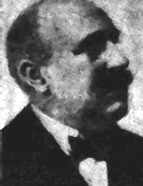

In Queirós Veloso’s historiographical work are to be found some of the characteristics of erudite historiography such as the value given to documents, the centrality of the leading figures and the pre-eminence of the political factor. His work was marked by his defence that any construction of the historical past must be supported by thorough documental research. His greatest concern was to seek to reconstitute the key facts of national history using sources that supported the whole historical argumentation. Queirós Veloso devoted himself to the 16th century, reconstructing national politics from the death of D. João III to the Battle of Alcácer-Quibir [Ksar El Kebir]. His analyses, based on diplomatic correspondence and negotiations, focused on political-institutional constructions surrounding the actions of the main figures of Portuguese political life in the second half of the 16th century (D. Catarina of Austria, Cardinal D. Henrique and D. Sebastião). To do this, he “brought” the General Archive of Simancas (Spain) and the endless resources available there to his study of Portuguese history. In the Archive he collected the documental sources that could be used as proof to structure his work. This type of archival work, which he had observed and appreciated in both Alexandre Herculano and Gama Barros, earned him praise from both his contemporaries and those who came later in particular for the unpublished documents he found but also for his positive and methodical analysis of them.
His historiographical work, denouncing the limits of erudite historiography, came to be criticized by historians inspired by the theses of the Annales movement (Vitorino Magalhães Godinho) since, by limiting himself to diplomatic documentation, Queirós Veloso only shows the issues from the point of view of secret negotiations and the actions of the key figures in the whole process. The view of the Portuguese people, of the popular masses, is almost imperceptible, being no more than a small part of the backdrop against which the main action – palace intrigues and machinations - takes place. Concern with the carefully dated fact seems to leave no space for the popular, and even national, conscience’s perception of the historical process of the second half of the 16th century.
